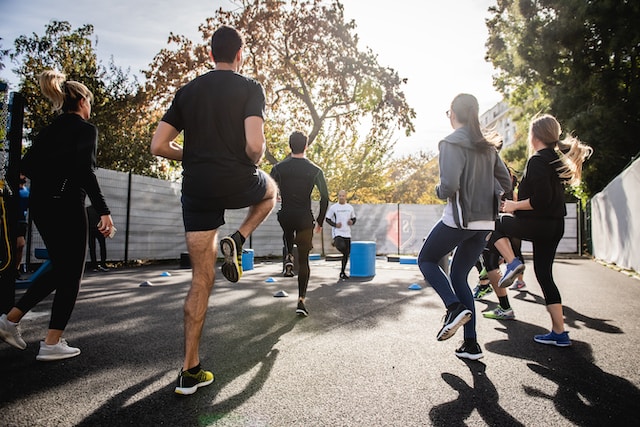Addiction recovery is a complex and challenging journey that requires a multi-faceted approach. While therapy and support groups have long been integral components of recovery plans, the role of exercise is increasingly recognized as a powerful tool in aiding individuals on their path to sobriety. This comprehensive guide explores the multifaceted role of exercise in
Addiction recovery is a complex and challenging journey that requires a multi-faceted approach. While therapy and support groups have long been integral components of recovery plans, the role of exercise is increasingly recognized as a powerful tool in aiding individuals on their path to sobriety. This comprehensive guide explores the multifaceted role of exercise in addiction recovery and provides valuable insights for those seeking a holistic approach to overcoming addiction.
- Physical and Mental Health Benefits: Exercise offers a myriad of physical and mental health benefits for individuals in recovery. Engaging in regular physical activity triggers the release of endorphins, natural chemicals in the brain that promote a sense of well-being and reduce stress and anxiety. These mood-boosting effects are particularly crucial during the early stages of recovery when individuals may experience intense cravings and emotional turmoil.
- Neurological Restoration: Substance abuse disrupts the brain’s delicate balance, impacting cognitive functions and decision-making processes. However, exercise has been shown to support neurological restoration. Physical activity promotes the growth of new neurons and strengthens neural connections, enhancing cognitive function and improving clarity, focus, and self-control—essential qualities for successful recovery.
- Cravings Reduction: One of the most significant challenges in addiction recovery is managing cravings. Exercise has been found to reduce cravings by releasing neurotransmitters, such as dopamine, which are associated with pleasure and reward. Engaging in physical activity provides a healthier and natural means of experiencing the feel-good effects that substances previously provided, making it easier to resist the temptation to relapse.
- Stress and Anxiety Management: Stress and anxiety are often triggers for substance abuse. Exercise serves as a powerful stress and anxiety management tool. Physical activity stimulates the release of endorphins, which act as natural mood enhancers and stress relievers. By incorporating exercise into their routine, individuals in recovery can find healthier ways to cope with stress, reducing their reliance on substances as a means of escape.
- Building Structure and Routine: Recovery involves establishing new routines and breaking free from old, destructive habits. Exercise offers an excellent opportunity for individuals to create structure and routine in their daily lives. By scheduling regular workouts or physical activities, individuals can replace idle time previously spent on substance use with productive and healthy habits. This shift towards a more structured lifestyle fosters discipline, accountability, and positive decision-making.
- Self-Esteem and Self-Image: Substance abuse often erodes an individual’s self-esteem and self-image. Exercise can play a transformative role in rebuilding self-worth. As individuals engage in physical activity and witness their progress, they develop a sense of accomplishment and pride. Achieving fitness goals, improving physical health, and feeling stronger can significantly boost self-esteem and contribute to a positive self-image.
- Social Support and Connection: Recovery is often strengthened by the support and connection individuals find in like-minded communities. Many exercise programs, fitness classes, or sports activities cater specifically to those in recovery. These settings provide a supportive environment where individuals can connect with others who understand their struggles. The camaraderie and accountability found in these communities can be a vital source of encouragement and motivation.
While exercise offers numerous benefits for addiction recovery, it is crucial to approach it with care and guidance. Consulting with healthcare professionals, addiction specialists, or therapists is essential to ensure exercise routines are safe, suitable for individual needs, and complement other aspects of the recovery plan.
In conclusion, exercise plays a multifaceted role in addiction recovery, addressing physical, mental, and emotional aspects of healing. By incorporating regular physical activity into their lives, individuals can experience the profound benefits that exercise offers. From promoting overall well-being and reducing cravings

















Leave a Comment
Your email address will not be published. Required fields are marked with *